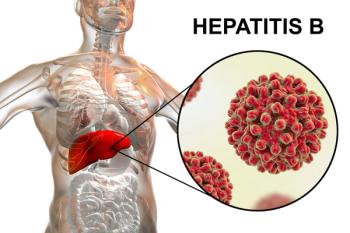
FDA Approves Antibiotic Ceftobiprole Medocaril for Injection for 3 Indications
The antibiotic was approved to treat Staphylococcus aureas bacteremia, acute bacterial skin and skin structure infections, and community-acquired bacterial pneumonia.
The FDA has approved antibiotic ceftobiprole medocaril sodium for injection (Zevtera) for 3 indications: the treatment of adults with Staphylococcus aureus bacteremia (SAB), including right-sided infective endocarditis; the treatment of adults with acute bacterial skin and skin structure infections (ABSSSI), and the treatment of adults and children aged 3 months to 18 years with community-acquired bacterial pneumonia (CABP), according to a news release.1
Staphylococcus aureus Bacteremia
The agency’s approval of ceftobiprole medocaril sodium for SAB was based on data from a randomized, controlled, double-blind, multinational, multicenter clinical trial (
Overall success was defined as survival, symptom improvement, S aureus bacteremia bloodstream clearance, no new S aureus complications, and no use of other potentially effective antibiotics. Results demonstrated that 69.8% of patients in the ceftobiprole medocaril sodium group achieved overall success, compared with 68.7% in the comparator group.
The most common adverse effects in this patient population included anemia, nausea, hypokalemia, vomiting, diarrhea, increased hepatic enzymes and bilirubin, increased blood creatinine, elevated blood pressure, leukopenia, and dyspnea, among others.
ABSSSI
Efficacy of ceftobiprole medocaril sodium in treating ABSSSI was evaluated in a randomized, controlled, double-blind, multinational trial (
Early clinical response included a reduction of the primary skin lesion by at least 20%, survival for at least 72 hours, and the absence of additional antibacterial treatment or unplanned surgery. In the treatment group, 91.3% of patients achieved an early clinical response, compared with 88.1% of patients in the comparator group.
The most common adverse effects of ceftobiprole medocaril sodium include nausea, diarrhea, injection site reaction, increased hepatic enzymes, and dysgeusia, among others.
CABP
The efficacy of ceftobiprole medocaril sodium in treating adults with CAPB was evaluated in a randomized, controlled, double-blind, multinational, multicenter clinical trial (
In the ceftobiprole medocaril sodium group, 76.4% of patients achieved clinical cure, vs 29.3% in the comparator group. An additional analysis, considering clinical success at day 3, was also conducted: 71% of patients in the ceftobiprole medocaril sodium group achieved clinical success compared with 71.1% in the comparator group within the shortened time frame.
Because the course of CABP is similar in adults and pediatric patients, the ceftobiprole medocaril sodium approval in pediatric populations was supported by data from the adult trial and a clinical trial of 138 pediatric patients with pneumonia (
In adults with CABP, the some of most common adverse effects of treatment with ceftobiprole medocaril sodium included increased hepatic enzymes, phlebitis, and dizziness; common adverse effects were similar for children with CABP.
Warnings and precautions of ceftobiprole medocaril use include increased mortality when used to treat ventilator-associated bacterial pneumonia, which is an unapproved use; hypersensitivity reactions, seizures and other central nervous system reactions, and Clostridioides difficile-associated diarrhea.
The FDA granted ceftobiprole medocaril both priority review and fast track and qualified infectious disease product designations for all 3 indications.
Reference
1. FDA approves new antibiotic for three different uses. News release. FDA. April 3, 2024. Accessed April 4, 2024. https://www.fda.gov/news-events/press-announcements/fda-approves-new-antibiotic-three-different-uses
Newsletter
Pharmacy practice is always changing. Stay ahead of the curve with the Drug Topics newsletter and get the latest drug information, industry trends, and patient care tips.























